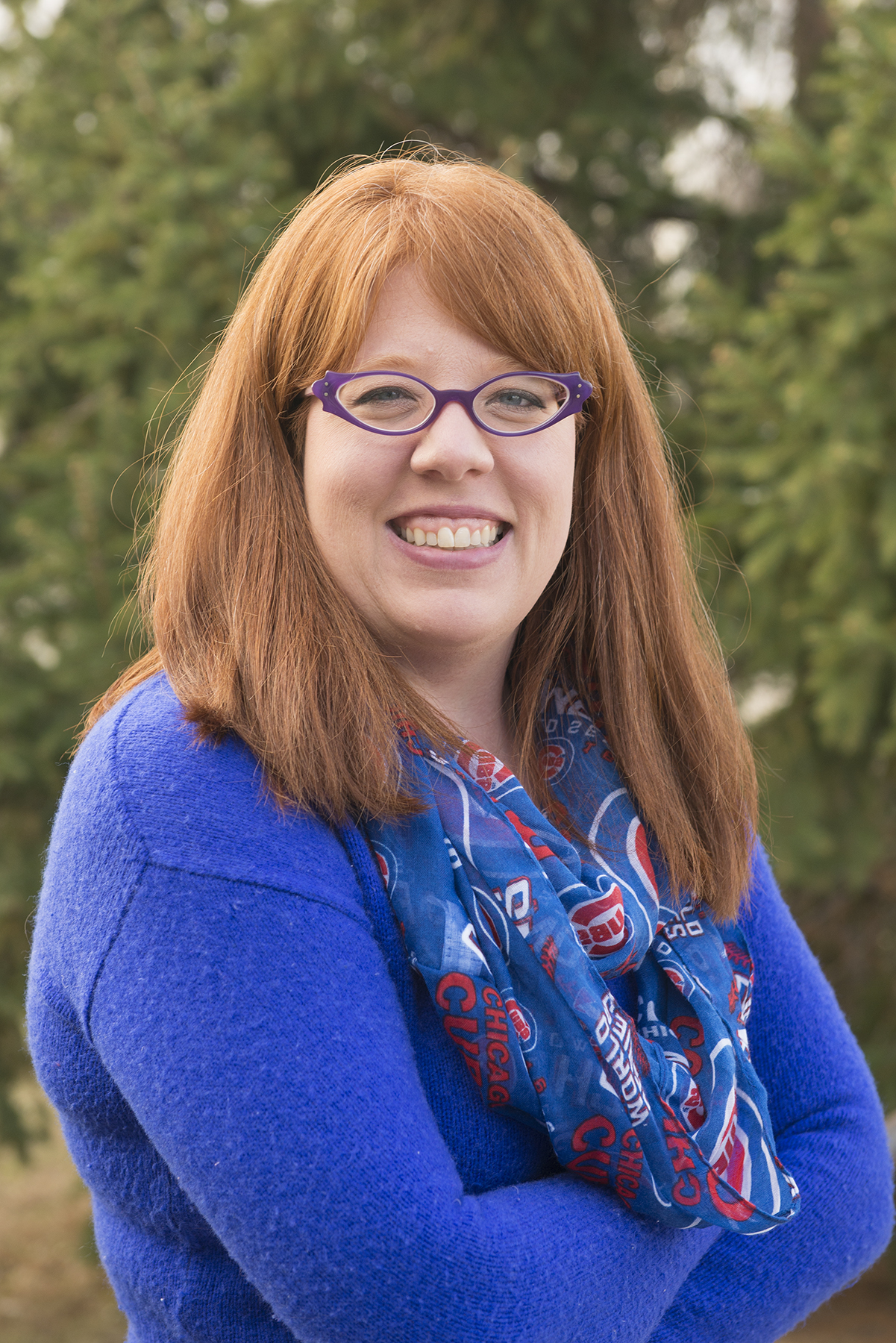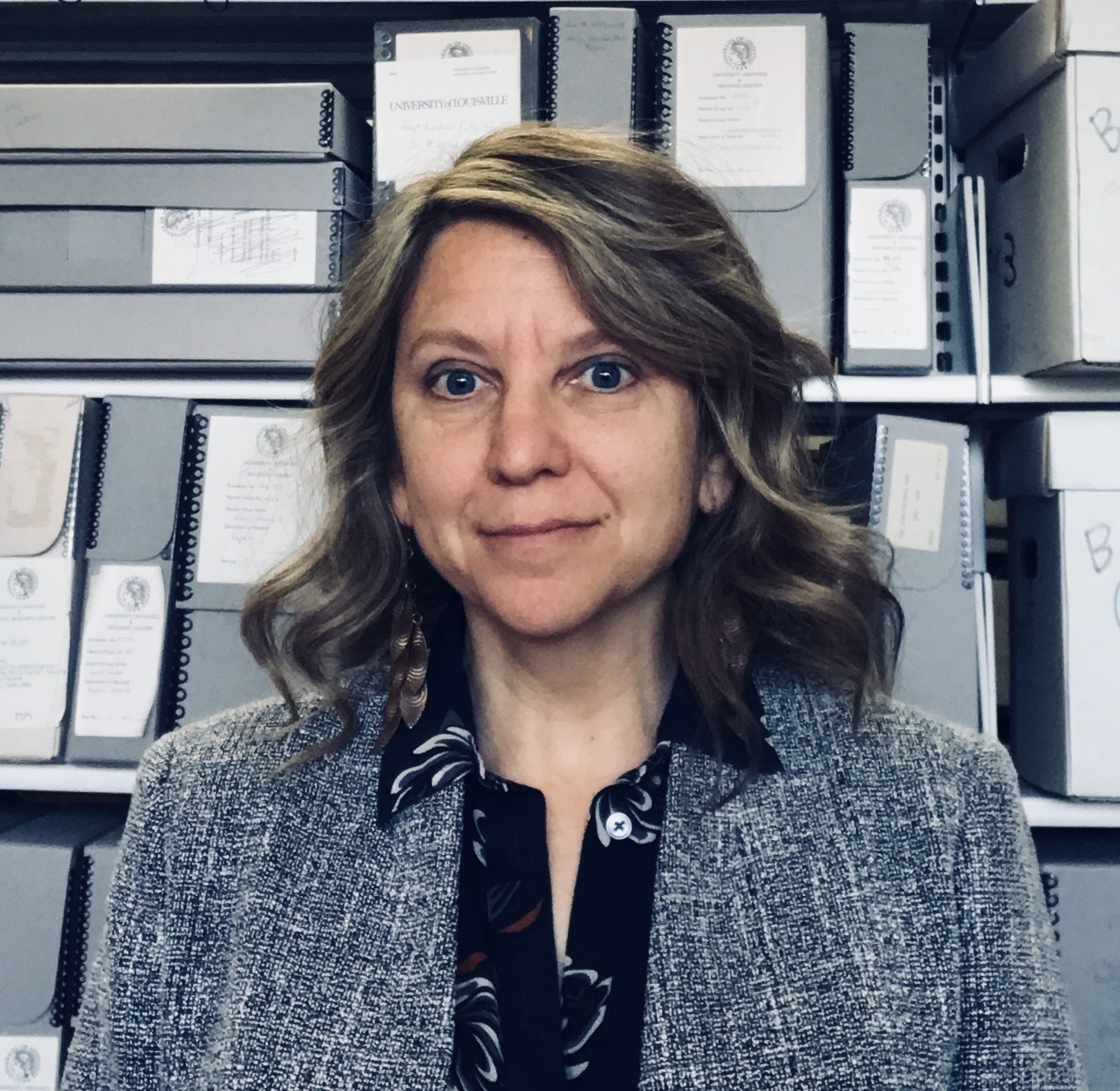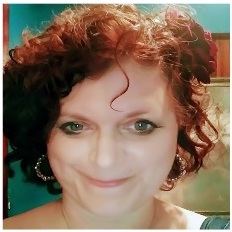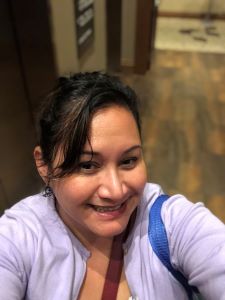2020 Nominating Committee Candidates
April Anderson-Zorn
Heather Fox
Kim Schroeder
Rachel Seale
April Anderson-Zorn

Employment: University Archivist, Illinois State University, 2011–present; Senior Archivist, University of Central Florida, 2007–2011; Graduate Assistant - Archivist, University of Central Florida, 2005–2007.
Education: MLIS, Florida State University, 2010; MA in History-Public History track, University of Central Florida, 2007; BA in History, University of West Florida, 2003.
Professional Activities:
SAA: Member, 2007–present; Key Contact Sub-Committee, District 5 Representative; Program Committee, 2020; Women Archivists Steering Committee member.
MAC: Member, 2011–present.
Other: Member, Chicago Area Archivists (CAA), 2016–present.
Candidate Statement:
How will you work with the Nominating Committee to move MAC and its leadership beyond diversity to full inclusion of diverse perspectives and experiences?
When I moved to the Midwest in 2011, I didn’t know anyone in the region. I was still a relatively new professional who was not only getting to know snow but looking to connect with other archivists. MAC provided me with a new group of kind and understanding professionals whom I could rely on for help and advice. The relationships I’ve made through MAC are invaluable to me and have helped me grow as a professional in a career I love. If elected to the Nominating Committee, I would be able to give back to the membership and help foster its growth by identifying diverse and inclusive MAC voices to help lead our growing profession.
In my current role, I encounter a wide range of experiences and backgrounds in the students who take on our archives internships. Some of them become archivists, while others find different paths in information science. Last year, I was able to hire a history graduate student with an SAA Foundation grant to create Wikipedia pages for underrepresented archivists. While she was already interested in the history of underrepresented groups, this work has opened a new research avenue to her and will allow her to continue to contribute to our profession once the grant is complete. This student, as with all of my students, is the future of our profession. It is our responsibility to hear them, help them, and foster their professional growth.
I believe it is the Nominating Committee’s duty to be active communicators and listen to the membership’s diverse and inclusive needs. The Committee must collaborate to find a broad representation of members who have ideas that can make a positive change for the membership. In this work, the Nominating Committee will ensure the continued growth and prosperity for MAC into the future.
Heather Fox

Employment: Director, Oral History Center/Manuscript Archivist, 2016–present; Metadata Librarian, University of Louisville, 2013–2016; Filson Historical Society, Associate Curator, 2012–2013; Project Manager, development of union catalog of oral history collection in Kentucky, Kentucky Historical Society, 2011–2012; Project Archivist, Speed Art Museum, 2010–2011; Freelance Audio-Visual Archivist, Appalshop, 2009–2010.
Education: MLIS, University of Kentucky, 2009: BA in Political Science, 2000.
Professional Activities:
MAC: Local Arrangements Committee, member, 2015; Mixed Media column editor, MAC newsletter 2015–2017
Kentucky Oral History Commission: advisor, 2016–present.
SAA: Women Archivist Section, steering committee member, 2018; Metadata and Digital Objects Roundtable steering committee, 2013–2015.
Candidate Statement:
How will you work with the Nominating Committee to move MAC and its leadership beyond diversity to full inclusion of diverse perspectives and experiences?
Connecting people is one of my strengths. I thrive on getting to know people and hearing their stories. If elected to the nominating committee, I will harness these skills to identify leaders with the capacity to do more than simply listen to the membership’s concerns–leaders who engage with relevant issues and then act upon them. These are the types of leaders who take the complementary ideas of diversity and inclusion seriously and understand that advancing diversity and inclusion means attending to myriad issues related to mobility, learning differences, race/gender/sexuality, people with different levels of experience and more. I understand that these leaders will need to work with intention to create a MAC environment where all members feel heard and respected.
While no single person will be able to make MAC inclusive in a single term or a single year, leaders can be models for inclusivity, can mentor future leaders, can boost communication, and can embrace constructive changes that will move MAC closer to our goal.
Kim Schroeder

Employment: I have twenty years of experience in multi-media archiving consulting and twenty years in teaching in Library and Information Science and Archival Studies.
Education: I have my MLIS and Graduate Certificate in Archival Administration from Wayne State University.
Selected Professional Activities:
In the more than five years that I have coordinated the Wayne State Archival Administration program, I have started an Archival Advisory Board, developed an Alternative Spring Break program (with placements at various NARA and Smithsonian locations), gained approval of our program as an ACA approved certificate, and developed an archival student/alumni mentoring program. I am also Career Advisor for SIS, Faculty Advisor for the NDSA Student Group, and Coordinator of Digital Media Projects Lab.
Selected Professional Association Involvement:
National Digital Stewardship Alliance (NDSA) Innovators Award (2013); Created first NDSA Student Group (2013).
Association of Moving Image Archivists Copyright Committee (2018).
Professional Diversity Presentations:
October 2019 – Wayne State University Humanities Brown Bag “Adaptation in the Gay Community: Exploration Through Oral Histories”
MAC 2020 – No Invisible Minorities. Kim Schroeder will focus on her graduate oral history class' work with underrepresented communities including environmental justice urban leaders, Hispanic urban leaders, and the LGBTQ community, focusing on the complex work of including underrepresented communities in the historic record.
Candidate Statement:
How will you work with the Nominating Committee to move MAC and its leadership beyond diversity to full inclusion of diverse perspectives and experiences?
I am honored to be considered for this committee. The need to diversify our profession is our most serious issue. I lead an oral history course in which I teach our students that the beauty of oral history is that it fills in the traditional historic record and assures that there are no “invisible minorities”. I teach that every culture, ethnicity, gender, orientation, and religion deserve to be a part of our documented history.
My work over the last seven years reflects a deep-seated commitment to offer mentoring to our underrepresented students, to work with multicultural collections, and to create oral histories in the LGBTQ, Hispanic, and African American communities. I have also digitized and increased access to collections of many African American cultural institutions including a church, a sorority, a newspaper, and a museum. This, combined with my work with our alumni, has firmly connected me to a diverse group of collections and people related to our field, and provided me the opportunity to interact with various communities.
To diversify its leadership and get it where it needs to be, MAC requires assistance from someone with strong outreach skills, a wide network, and an active recruiter for a diverse professional body. Increasing diversity in every aspect of our archival world (staff and collections) is critical to our viability to truly reflect the history of our multicultural country.
Rachel Seale

Employment: Outreach Archivist, Iowa State University, 2016–present; Archivist, Associate Archivist, Assistant Archivist, University of Alaska Fairbanks, 2009–2015; Reference Librarian, Forbush Memorial Library, 2006–2008.
Education: MSLIS (Archives Management), Simmons College, 2006; BA in English (Literature), Arizona State University, 2003.
Professional Activities:
MAC: Fall 2018 Symposium, co-presenter, 2018.
SAA: Committee on Public Awareness, member, 2017–2020, ArchivesAWARE (blog) editor, 2019–present; Archivists and Archives of Color Section, Iowa representative, 2016–present; Security Roundtable, senior co-chair, 2015–2016, junior co-chair, 2014–2015, secretary, 2013–2014.
Alaska Library Association: conference chair, 2015; Special Libraries Roundtable chair, 2014–2015.
NWA: Nominating Committee, chair, 2014; Board member and Alaska representative, 2013–2015; Annual Meeting Program Committee, member, 2011.
Candidate Statement:
How will you work with the Nominating Committee to move MAC and its leadership beyond diversity to full inclusion of diverse perspectives and experiences?
I believe it is important for MAC to move beyond representing diversity to moving to a culture of inclusivity. This is how an organization retains and recruits members, advances cultural competence, and becomes an environment where creativity and innovation can bloom. I would work with the Nominating Committee to intentionally recruit candidates that not only hold diverse perspectives and experiences but have the vision to create an environment of inclusivity at MAC. I would help the committee find individuals who have ideas on the steps we need to make, as an organization, to build an environment that welcomes all. This also means recruiting people who aren’t afraid to make mistakes or to challenge the status quo if the organization’s practices fall out of step with its statement of values.
Specific steps I would take:
- Acknowledge biases and make sure they do not interfere with finding candidates
- Network with colleagues to help identify suitable individuals to stand for election to offices
- Reach out to people I don’t know but who have demonstrated leadership in the archives field in advancing diversity, equity, and inclusion to either stand for election or to help identify appropriate candidates
I believe MAC is an excellent organization and would work hard to make it an organization that welcomes everyone.
|